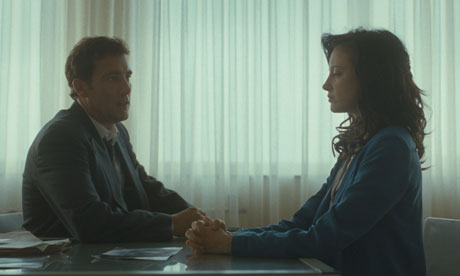
"The Troubles" is a euphemistic phrase for a still-raw piece of modern British history. Director James Marsh has decided not to excavate the specifics of the period for his second dramatic feature, in which a Northern Irish woman is forced to choose between her (presumably) IRA-supporting family and the British secret services trying to recruit her. Instead, it is a film that will surprise those who know Marsh only from his docs – the Oscar-winning Man on Wire and Bafta-nominated Project Nim – and also cement the director's reputation as one of the UK's leading auteurs.
Shadow Dancer stars Andrea Riseborough as Colette McVeigh, whom we first meet as a child in the early 70s in a suburban Belfast family setting. Her father needs some cigarettes and asks his daughter to get them, but she sends her little brother instead. He returns lifeless and smothered in blood, caught in the crossfire of sectarian violence, which is where this taut and somewhat unforgiving drama gets its fire. We then flash forward 20 years, to where Colette, now a woman, is riding the London tube with a handbag that may or may not contain a bomb. The ensuing sequence, like the film, is long, tense and surprisingly wordless.
Colette is arrested and given an ultimatum by the authorities, in the guise of MI5 operative Mac (Clive Owen), who tells her that, unless she cooperates, her young son will be take from her. Colette, we learn, is from a known Republican family, and her brothers are lethally passionate about the cause. She herself, though, is at a crossroads, and Mac tries to exploit this crisis of confidence. The two begin an awkward but professional relationship, with Colette cast as the reluctant informer and Mac as an even more reluctant father figure, trying to push her into the role of mole in order to break the accompanying culture of violence.
From here, the film becomes an opaque, slow-burning but brilliant thriller about the compulsions of terrorism, one that avoids ideological bombast and looks instead to the experiences of an angry and frightened woman. This kind of idea is dealt with all the time in European cinema, notably in the open-ended and austere cinema of French director Bruno Dumont, but rarely in the UK – with the exception of Steve McQueen's Hunger. Marsh's film, however, is one that makes a difference, a poetic and unapologetically arthouse story of betrayal and loyalty that, with its terrific score, measured pacing and fierce female performances, is a raw reminder of a sad and painful past.

